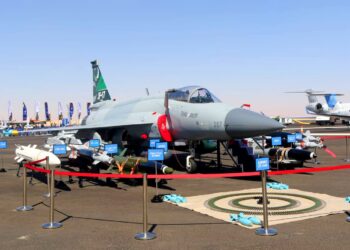Islamabad – In a strategic move reflecting Pakistan’s evolving security landscape, the government has officially appointed Director General Inter-Services Intelligence (ISI) Lieutenant General Muhammad Asim Malik as the country’s new National Security Advisor (NSA). This appointment is being seen as a critical development in the context of Pakistan’s national defense strategy and foreign policy approach.
Official Confirmation and Notification
According to credible sources within the federal government, a formal notification has been issued confirming Lieutenant General Asim Malik’s new role. He will serve as the National Security Advisor while concurrently holding his position as DG ISI, making this a dual-charge appointment. This arrangement signifies the government’s intention to streamline strategic intelligence and policy formulation processes at the highest level.
Why This Appointment Is Significant
The position of National Security Advisor plays a pivotal role in shaping Pakistan’s internal and external security policies, advising the Prime Minister on strategic affairs, and coordinating between civilian and military intelligence agencies. The decision to appoint a serving DG ISI to this post highlights the seriousness with which the government is treating emerging regional and global challenges.
Profile of Lieutenant General Muhammad Asim Malik
Lieutenant General Muhammad Asim Malik assumed the office of Director General of Inter-Services Intelligence in September 2024. He is widely recognized for his strategic acumen, operational experience, and leadership in the armed forces. Throughout his military career, Lt. Gen. Malik has been involved in major national security initiatives and is known for his deep understanding of counter-terrorism, foreign policy, and military diplomacy.
Prior to becoming DG ISI, he held various high-ranking positions within the Pakistan Army, including command and staff appointments that provided him with crucial insights into national defense and international strategic affairs.
Context of the Appointment
The appointment of a high-ranking military official to a key civilian advisory role comes at a time of heightened security concerns in the region. With ongoing tensions at the borders, evolving geopolitical alliances, and challenges such as hybrid warfare and cyber threats, Pakistan’s leadership appears focused on ensuring a cohesive and well-informed national security strategy.
Observers believe that assigning this additional charge to the DG ISI is also an attempt to synchronize military intelligence with diplomatic and strategic decision-making. The current global environment demands unified responses and quick action—something that this move is likely intended to facilitate.
Comparison with Previous NSAs
Pakistan has had several notable individuals serve as National Security Advisor in the past, including Moeed Yusuf and Sartaj Aziz. These advisors typically came from academic or diplomatic backgrounds. However, the current appointment breaks from tradition by placing a senior military intelligence official in the role, signaling a more assertive and security-centric approach to both domestic and foreign policy.
Reaction from Political and Strategic Circles
Initial reactions from political analysts and defense experts have been largely positive. Many view this as a pragmatic step aimed at enhancing policy implementation and streamlining command structures. However, some critics have raised concerns about the increasing militarization of civilian policy roles, urging the government to maintain a balance between civil and military institutions.
Implications for Foreign Policy and Regional Dynamics
Lieutenant General Malik’s appointment comes at a crucial time when Pakistan is navigating complex relationships with key global players such as China, the United States, and neighboring India and Afghanistan. His presence in the NSA role is expected to strengthen Pakistan’s position in regional security dialogues, particularly on issues such as border management, counter-terrorism cooperation, and strategic deterrence.
As DG ISI, General Malik has already engaged with international counterparts, and his expanded role could lead to a more unified representation of Pakistan’s security stance in international forums.
Strategic Synchronization between ISI and National Security Division
Another key benefit of this dual appointment is the expected synchronization between the ISI and the National Security Division (NSD). With the same individual overseeing both intelligence gathering and national security policy, experts believe the flow of information will be faster and more coherent, potentially improving the efficiency and effectiveness of government response to security threats.
Future Outlook
As Pakistan faces multifaceted security challenges, including terrorism, cyber-attacks, disinformation campaigns, and regional instability, the role of the National Security Advisor is expected to grow in importance. Lieutenant General Asim Malik’s experience and credentials make him a strong candidate to lead this critical office during such volatile times.
The government is likely to rely on his military expertise and intelligence background to formulate robust responses to emerging threats and to fortify Pakistan’s strategic partnerships globally.
Conclusion
Lieutenant General Muhammad Asim Malik’s appointment as National Security Advisor marks a defining moment in Pakistan’s strategic policy trajectory. It underscores the government’s intent to reinforce national security by bridging gaps between intelligence operations and policymaking. While the move has sparked a range of opinions, it undeniably signifies a proactive and unified approach to safeguarding the country’s interests in an increasingly unpredictable world.

























